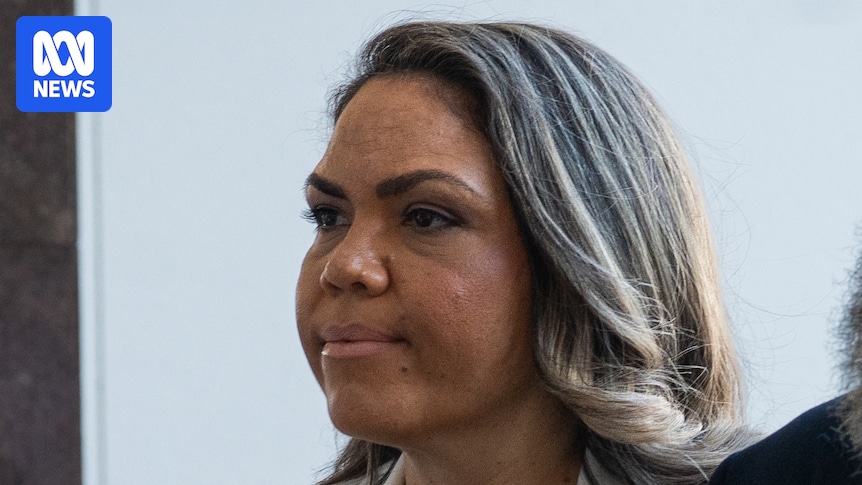Listen to the article
Aboriginal Leader Accuses Senator of Using False Claims for Political Gain in Defamation Case
The chief executive of one of Australia’s largest Aboriginal representative bodies has testified that Senator Jacinta Nampijinpa Price amplified false claims about his leadership “for her own political agenda” during a Federal Court defamation trial.
Lesley Turner, who heads the Central Land Council (CLC), is suing Senator Nampijinpa Price over a media release issued by her office in July 2024. The release claimed Turner had lost support from fellow councillors and called for leadership change at the organization.
The CLC represents a significant portion of Aboriginal interests in the Northern Territory, with 90 elected delegates from communities across the southern half of the territory. Its influence in Indigenous affairs makes this legal dispute particularly noteworthy in Australia’s political landscape.
During his second day of testimony, Turner stated he believed the senator had repeated claims made by the council’s then-chairman Matthew Palmer without verifying their accuracy. The claims centered on an alleged unsuccessful no-confidence motion against Turner during a meeting of male council delegates.
“I thought she would have checked it was factually correct, but she didn’t,” Turner testified. “I had no contact from Senator Price or her staff.”
In a February affidavit presented to the court, Turner expressed being “outraged” that Senator Nampijinpa Price implied he was “responsible for keeping Aboriginal people in poverty.” He described the experience as “devastating” and said, “It cut me up. I felt that she was using me as a punching bag.”
Turner further alleged the senator was “attacking” him “to score political points against the Albanese Government,” suggesting the case has broader political implications beyond the individuals involved.
Under cross-examination by the senator’s barrister, Peter Gray SC, Turner acknowledged he had been the subject of a proposal calling for his immediate dismissal put forward by Palmer. However, he denied that a formal motion was ever officially moved during the meeting, which he did not attend.
When questioned about why he didn’t contact delegates who attended the meeting to clarify what happened, Turner explained it would have been culturally inappropriate. “It was a cultural meeting of men, and it would have been inappropriate for me to ask,” he stated.
The court heard that Turner’s legal team had sent a concerns notice to the senator’s office, which did receive a response, though outside the stipulated 28-day timeframe. After being pressed by Gray, Turner conceded the senator had not ignored him nor treated him with contempt, though he maintained he felt “frustrated and upset.”
In a parallel action, Turner had also sent legal notices to the NT News, which published articles repeating the claims. He reached a settlement with the newspaper that included an apology and $5,500 in damages and legal costs, significantly less than the $60,000 he initially sought.
Gray questioned what he described as an “inconsistency” in Turner’s approach to dealing with the NT News versus Senator Nampijinpa Price. Turner was also asked why he hadn’t sent concerns notices to the ABC, which had also reported on Palmer’s allegations. He responded that he thought the story would “peter out.”
Court documents outlining the senator’s defense state she “had a community interest” in publishing the release and had “took proper steps, such as were reasonably available to her, to verify the accuracy of the material published by her.”
The case highlights tensions between Indigenous leadership and political representation in Australia, with implications for how Aboriginal affairs are discussed in the public domain. It also raises questions about the responsibilities of elected officials when amplifying claims about Indigenous organizations.
Senator Nampijinpa Price is expected to give evidence later in the hearing, which continues to draw significant attention from those involved in Aboriginal affairs and Australian politics.
Fact Checker
Verify the accuracy of this article using The Disinformation Commission analysis and real-time sources.




12 Comments
This case highlights the delicate balance between political discourse and the responsible handling of sensitive information. I hope the truth comes to light through the defamation trial.
Agreed. Maintaining trust in the political system requires that elected officials act with integrity and respect the facts, even when it’s politically inconvenient.
Allegations of false claims for political gain are concerning, but we should withhold judgment until the full details emerge. Transparency and accountability are important in these kinds of disputes.
Well said. It’s important to avoid rushing to conclusions and instead let the legal process play out objectively.
This sounds like a complex political dispute. It’s concerning if false claims were amplified for political gain, but we’d need to see the full details to assess the situation objectively.
I agree, the allegations of political manipulation are serious. Hopefully the legal process can shed more light on what actually occurred.
The influence of the Central Land Council in Indigenous affairs makes this case particularly significant. It will be interesting to see how the defamation trial unfolds and what the final outcome is.
Absolutely, the CLC’s role as a major representative body means this dispute could have broader implications. The integrity of the political process is crucial, especially when it comes to Indigenous issues.
As an observer, I’m curious to see how this case unfolds and whether the court is able to determine the truthfulness of the claims made by the senator. Transparency is crucial in these matters.
Absolutely. A thorough and impartial investigation will be important to uphold the credibility of the political process, especially when it involves sensitive Indigenous issues.
The claims about an alleged no-confidence motion against the CLC chief are intriguing. I wonder what the underlying dynamics and motivations were behind those allegations.
Yes, that detail is quite interesting. It would be helpful to understand the full context and what led to those claims being made, if they were indeed false.